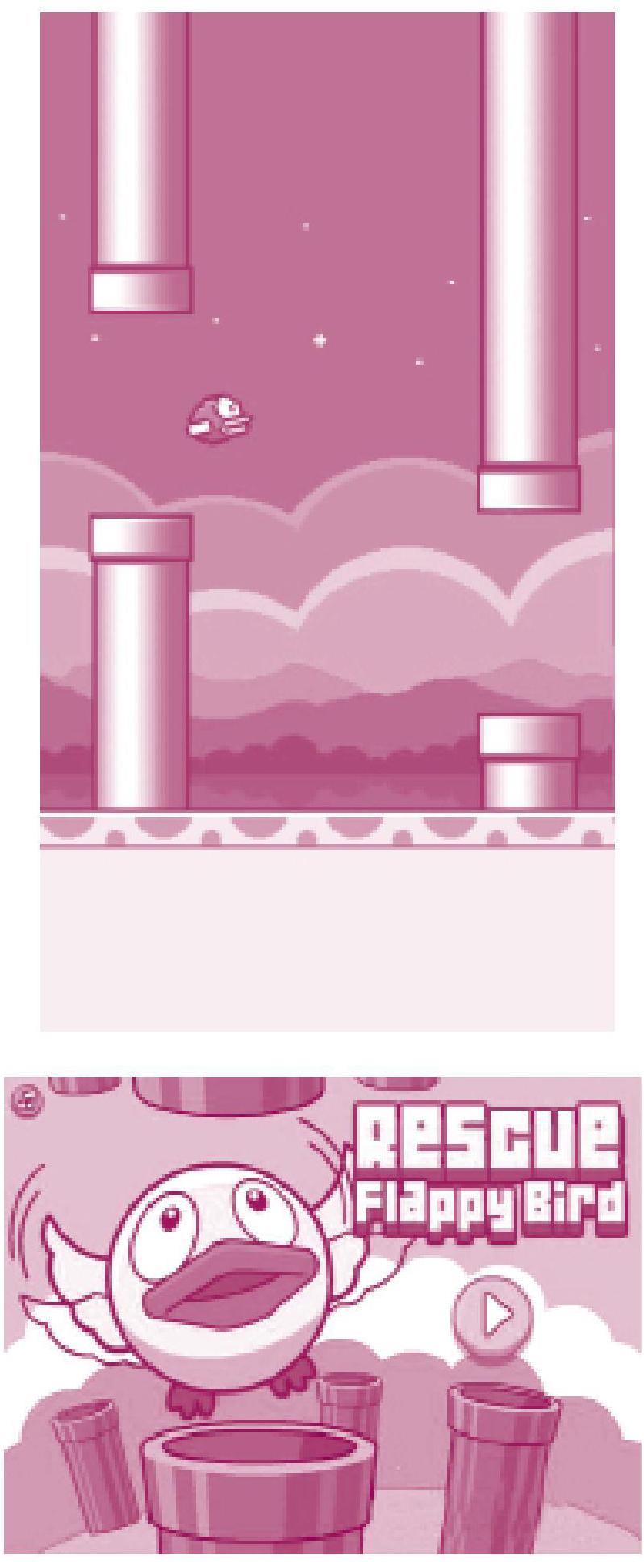无与伦比的快乐
2016-03-01
Most people prefer to stay in their comfort zones, doing things they are good at. But there is a group of gamers that take the opposite path, choosing extremely difficult or even impossible games instead.
One of those games, a puzzle app called Unbeatable Game—IQ, topped Apple iTunes list of most downloaded apps. And another app Mr Jump—a game that requires you to continuously tap your mobile screen like the original impossible game Flappy Bird—reached more than 5 million downloads within the first week of its release.
Jokingly referred to as a favorite for masochists, impossible games have been very popular. They have advanced beyond the simplistic format of Flappy Bird, including endless running and complex puzzles. They also feature exasperating challenges and infinite-playing modes.
The popularity of impossible games is propelled by gamers hunger for ever-greater challenges. Players measure their success not by completing missions, but by delaying failure.
大多数人宁愿待在自己的舒适区,做他们擅长的事儿。不过有一群游戏爱好者偏偏背道而驰,他们选择挑战那些极度困难,甚至是不可能通关的游戏。
一款益智类游戏《挑战IQ——无与伦比的竞技》,登上了苹果iTunes热门应用下载榜首位。而另一款应用《跳跳先生》在发布的第一周就达到了500多万的下载量——这款需要不停触击手机屏幕的游戏和之前的不可能通关的游戏《飞扬的小鸟》类似。
这种被戏称为受虐狂最爱的游戏,现在火了。它们大大地超越了形式简单的《飞扬的小鸟》,加入了无尽头的奔跑和复杂的智力问题。它们还有的就是让人抓狂的挑战和无穷尽的游戏模式的特点。
这些虐心游戏风靡的原因来自于玩家们对更大挑战的渴望。他们并不以通关来衡量胜利,而是以延迟失败来衡量成功。
What makes those tough games appealing is a glimmer of joy a player gets from even the smallest achievements,” Jamin Brophy-Warren wrote for the Japan-based news website kotaku.com.
Constant failure can be dispiriting, but even small improvements in a players performance can encourage perseverance.
In Mr Jump, for example, each failure can teach gamers to beware of certain ambushes and keep the right pace to progress further in the game.
At first, Flappy Bird seems easy, as it only requires players to pilot a bird past narrow pipe gaps. But the game suddenly challenges you with seemingly impassable obstacles. Most gamers end up frustrated, cursing their slow fingers as the bird flies out of control or the pipe moves faster than they expect.
“Its about the feeling of obstacle,” Jesper Juul, videogame researcher from MIT (Massachusetts Institute of Technology), told The Wall Street Journal. “You get stuck somewhere and feel stupid. That can lead to a sense of triumph if one does eventually succeed.”
Some impossible games have also made use of “peer pressure” to foster popularity, noted Forbes reviewer Anthony Kosner.
Unbeatable Game—IQ, for example, allows gamers to show off their high scores to friends, after they triumph over the apps frustrating puzzles.
However, after sharing their scores, players might find themselves in another infinite game, this time in the real world. They may feel the pressure to endlessly keep improving their scores, to prevent their friends from outperforming them.
“这类困难至极的游戏吸引人的地方就是,哪怕一丁点的进步都能让玩家感受到快乐。”雅明·布罗菲-沃伦在日本新闻网站kotaku.com上写道。
持续的失败确实很让人沮丧,不过小小的进步却能鼓励玩家坚持下去。
以《跳跳先生》为例,每次失败都能提醒玩家注意某些地方有埋伏,让他们知道安全的路径,一次比一次走得更远。
起初,《飞扬的小鸟》看似很简单,因为玩家只需要控制一只小鸟躲避水管障碍。不过它会突然用看似无法逾越的障碍给你一个下马威。大部分玩家最后都是挫败而归,在小鸟不受控制或者水管移动太快的时候咒骂自己反应迟钝的手指。
麻省理工学院的电子游戏研究员贾斯珀·尤尔告诉《华尔街日报》:“这和人对困难的感受有关。你被困在某地,觉得自己愚蠢至极。如果最终成功了,你就能体会到成功的快感了。”
还有一些不可能通关的游戏因为“同辈压力”火了,《福布斯》杂志评论员安东尼·科斯纳说。
以《挑战IQ——无与伦比的竞技》为例,当玩家完成了应用里令人泄气的超级难题时,他们就可以向朋友炫耀自己的高分了。
然而,在秀完了分数之后,玩家可能会发现自己陷入了另一场无穷尽的游戏,只不过这次是在现实世界里。为了防止朋友的反超,他们将无止境地感受到提升自己得分的压力。
